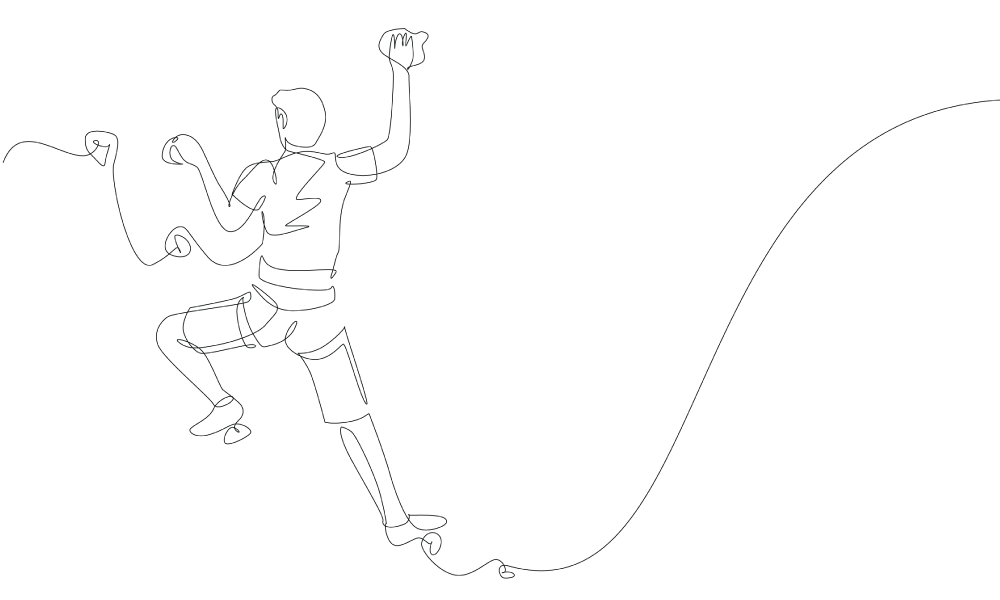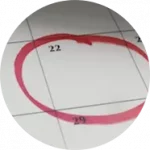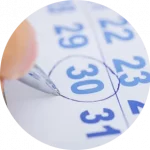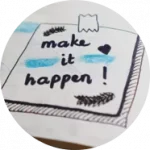Home » Guide to Quitting Weed » Week 4
What to Expect Four Weeks After Quitting Weed

Preparing to quit or reduce
Beginning your journey
Making progress
You’ve come a long way
Week 4
Preparing for the future
Looking forward
Day 22
You’ve Made it to Week 4!
 Congratulations on making it to the last week of this Guide! As you reflected on some of the positive benefits yesterday, we hope you are feeling proud.
Congratulations on making it to the last week of this Guide! As you reflected on some of the positive benefits yesterday, we hope you are feeling proud.
The last week of The Weedless Guide will focus on understanding the changes your body is still going through and preparing for the future. Though maintaining abstinence may still require a moment-to-moment degree of effort, it also requires some planning ahead. We will talk about what to expect in the future and how to make sustainable changes in your life going forward.
Day 23
Neurobiology: Brain Changes Following Marijuana Cessation
 Over the past several weeks, your brain has made a lot of adaptations around the absence of marijuana. We’ve touched on the concept of brain fog and some of the other mood symptoms that might persist longer than others. You may have wondered if you would ever feel normal again.
Over the past several weeks, your brain has made a lot of adaptations around the absence of marijuana. We’ve touched on the concept of brain fog and some of the other mood symptoms that might persist longer than others. You may have wondered if you would ever feel normal again.
We’ve consistently told you that your withdrawal symptoms will eventually disappear, and here’s the science to back it up. With chronic exposure to a drug, the receptors it signals through become downregulated, in a process known as desensitization. This occurs for the endogenous cannabinoid receptor, CB1, as well as dopamine receptors in the reward center of the brain. In a rat model of cannabis dependence, dopamine receptors were in fact downregulated in response to chronic cannabis use, but the effect completely reversed by 4-6 weeks after cessation1. Similarly, in humans, CB1 receptor downregulation also normalized to levels seen in healthy controls after 4 weeks of abstinence2.
On a functional level, similar effects are seen. Heavy cannabis users can experience worsened cognitive performance while still actively using, and this is widely documented in the literature. However, after abstinence is achieved, there is a return to baseline of global cognitive performance as well as immediate and delayed recalll3-6. All this is to say that even though it may not feel like it, there is substantial evidence to suggest that you will eventually feel back to normal. It just takes time.
Day 24
Strategies: Develop Sustainable Rituals
 In the quest to keep yourself busy, you’ve probably tried out a lot of different activities. Variety is good in the beginning, especially when you’re still figuring out what works for you. Hopefully, by now, you’ve settled on a few hobbies that really make you feel good and accomplished.
In the quest to keep yourself busy, you’ve probably tried out a lot of different activities. Variety is good in the beginning, especially when you’re still figuring out what works for you. Hopefully, by now, you’ve settled on a few hobbies that really make you feel good and accomplished.
As you look ahead, the important thing is to develop a routine that is sustainable. If you try to do too much, you can set yourself up for a major crash. It can be tempting to try to be that “transformation story” when you finally start to feel good again. To become incredibly fit and incredibly healthy and everything to the max. These are all good things to partake in, but in moderation. Throwing yourself into a lot of activities and making large sweeping changes in your behavior may have been critical to cope with early withdrawal symptoms, but ultimately, this is about the long-term. Take a step back and think about which pieces of your new life matter most and what you can reasonably continue for many months to come. You got this.
Day 25
Positive Benefits: Opportunities Gained
 Many prior users describe that they felt unmotivated or lazy when they were using. You may have felt frustrated that things were passing you by but felt powerless to stop. Or maybe you just weren’t performing at work or school to the level that you knew you could achieve.
Many prior users describe that they felt unmotivated or lazy when they were using. You may have felt frustrated that things were passing you by but felt powerless to stop. Or maybe you just weren’t performing at work or school to the level that you knew you could achieve.
Now that you’ve lived without weed for 25 days, what does your drive feel like? Think about what opportunities have come up over the past month and if you would have taken them or even noticed them while you were using. Make a mental comparison of a before vs. after you. Be proud of what you’ve accomplished so far and start (or continue) thinking about what you hope to achieve in the future. If you can get through this month, you can really tackle anything.
Day 26
Strategies: Avoid Complacency
 As time continues to pass, you will start feeling better and better. You will have your routine down, and the time you used will feel more and more like the distant past. With this growing sense of stability, you may also start to feel like you can handle weed again. Maybe it wouldn’t be so bad to use just here and there. What’s the harm in that?
As time continues to pass, you will start feeling better and better. You will have your routine down, and the time you used will feel more and more like the distant past. With this growing sense of stability, you may also start to feel like you can handle weed again. Maybe it wouldn’t be so bad to use just here and there. What’s the harm in that?
The Guide is not here to tell you what to do. It’s true, some people can go back to smoking occasionally without issue. That being said, the decision to use again should be taken very seriously. You should carefully weigh the pros and cons to using again. What do you have to gain? What do you have to lose? The decision will be entirely yours to make. This is not meant to be a lecture or a scary warning, but we hope to prepare you for the thoughts that are to come months or even years down the road.
Day 27
Withdrawal: What to Expect After a Month
 The majority of withdrawal symptoms have likely subsided by now. For some people, though, several symptoms can persist for up to several months. These include some mood symptoms, like irritability and depression, as well as increased or decreased sleep with vivid dreams. Separately, studies have shown that increased fatigue, sneezing, and coughing can also occur after a month1.
The majority of withdrawal symptoms have likely subsided by now. For some people, though, several symptoms can persist for up to several months. These include some mood symptoms, like irritability and depression, as well as increased or decreased sleep with vivid dreams. Separately, studies have shown that increased fatigue, sneezing, and coughing can also occur after a month1.
Though some continued mood disturbance is entirely normal, there’s a difference between depressed mood secondary to withdrawal and clinical depression. Please do not hesitate to call your doctor if you feel like your mood is interfering with your ability to function in the world. And most importantly, if you ever wonder whether life is worth living or if you have any thoughts or plans to harm yourself or others, these are not feelings that you can or should deal with alone. Please do not hesitate to seek help.
National Suicide Prevention Lifeline: 1-800-273-8255
Day 28
Strategies: Plan Ahead
 Everyone knows that it’s incredibly hard to quit using any substance on which there is a dependence. The difficulties of the first few days, weeks, and months are expected, and there’s generally an established timeline of what you may or may not experience. You can brace yourself for these challenges, and in being here, you have clearly found a way to effectively do so. Congrats to you again.
Everyone knows that it’s incredibly hard to quit using any substance on which there is a dependence. The difficulties of the first few days, weeks, and months are expected, and there’s generally an established timeline of what you may or may not experience. You can brace yourself for these challenges, and in being here, you have clearly found a way to effectively do so. Congrats to you again.
As time continues on, there may be periods in which staying clean is easy and others that are not. Without a doubt, new triggers will arise when you least expect it. An old friend comes to town and wants to smoke with you. A loved one becomes sick and the stress weighs on you. How will you react? What can you do to avoid using again?
The key here is in the cliché, “expect the unexpected”. Though you may not be able to predict which trigger will appear at what time, you can plan for them in general. Start to think about what has worked for you so far and what hasn’t. For instance, do you need to be completely removed from a situation to abstain or do you prefer to have a friend hold you accountable? How do you feel comfortable saying no? What has provided stress relief? You don’t need all the answers or solutions now. Simply take the time to reflect throughout your recovery journey and start to plan for what comes next.
Preparing to quit or reduce
Beginning your journey
Making progress
You’ve come a long way
Week 4
Preparing for the future
Looking forward

Are you a regular marijuana user that has recently stopped using?
Currently, little data exists on heavy marijuana use and withdrawal. Weedless.org is collaborating with researchers to explore this topic and others. We have created a short, completely anonymous questionnaire which we will use to focus our future research efforts. You may skip any questions that make you feel uncomfortable and you are free to withdraw at any time. At the end of the survey, you will be given the option to anonymously share your responses with the Weedless.org community.
